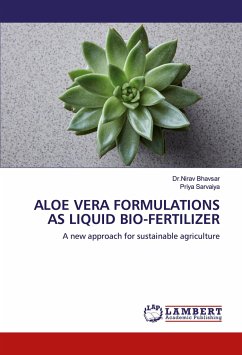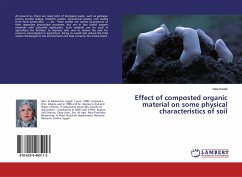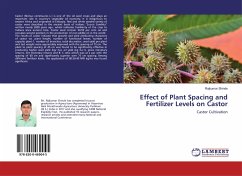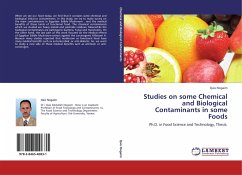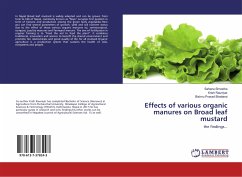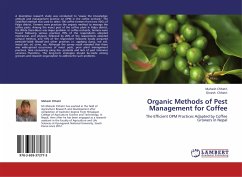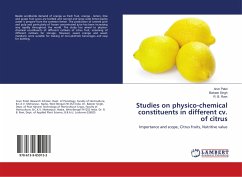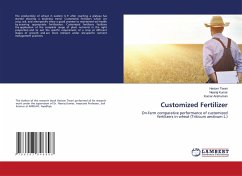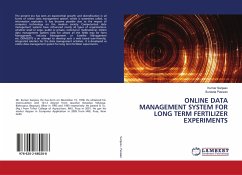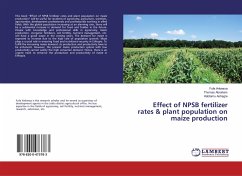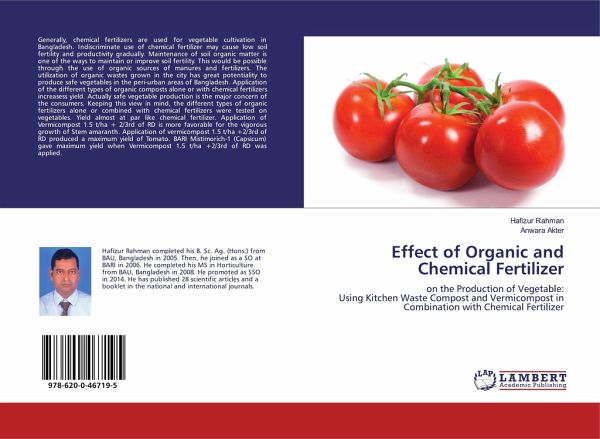
Effect of Organic and Chemical Fertilizer
on the Production of Vegetable: Using Kitchen Waste Compost and Vermicompost in Combination with Chemical Fertilizer
Versandkostenfrei!
Versandfertig in 1-2 Wochen
26,99 €
inkl. MwSt.

PAYBACK Punkte
13 °P sammeln!
Generally, chemical fertilizers are used for vegetable cultivation in Bangladesh. Indiscriminate use of chemical fertilizer may cause low soil fertility and productivity gradually. Maintenance of soil organic matter is one of the ways to maintain or improve soil fertility. This would be possible through the use of organic sources of manures and fertilizers. The utilization of organic wastes grown in the city has great potentiality to produce safe vegetables in the peri-urban areas of Bangladesh. Application of the different types of organic composts alone or with chemical fertilizers increases...
Generally, chemical fertilizers are used for vegetable cultivation in Bangladesh. Indiscriminate use of chemical fertilizer may cause low soil fertility and productivity gradually. Maintenance of soil organic matter is one of the ways to maintain or improve soil fertility. This would be possible through the use of organic sources of manures and fertilizers. The utilization of organic wastes grown in the city has great potentiality to produce safe vegetables in the peri-urban areas of Bangladesh. Application of the different types of organic composts alone or with chemical fertilizers increasess yield. Actually safe vegetable production is the major concern of the consumers. Keeping this view in mind, the different types of organic fertilizers alone or combined with chemical fertilizers were tested on vegetables. Yield almost at par like chemical fertilizer. Application of Vermicompost 1.5 t/ha + 2/3rd of RD is more favorable for the vigorous growth of Stem amaranth. Application of vermicompost 1.5 t/ha +2/3rd of RD produced a maximum yield of Tomato. BARI Mistimorich-1 (Capsicum) gave maximum yield when Vermicompost 1.5 t/ha +2/3rd of RD was applied.



